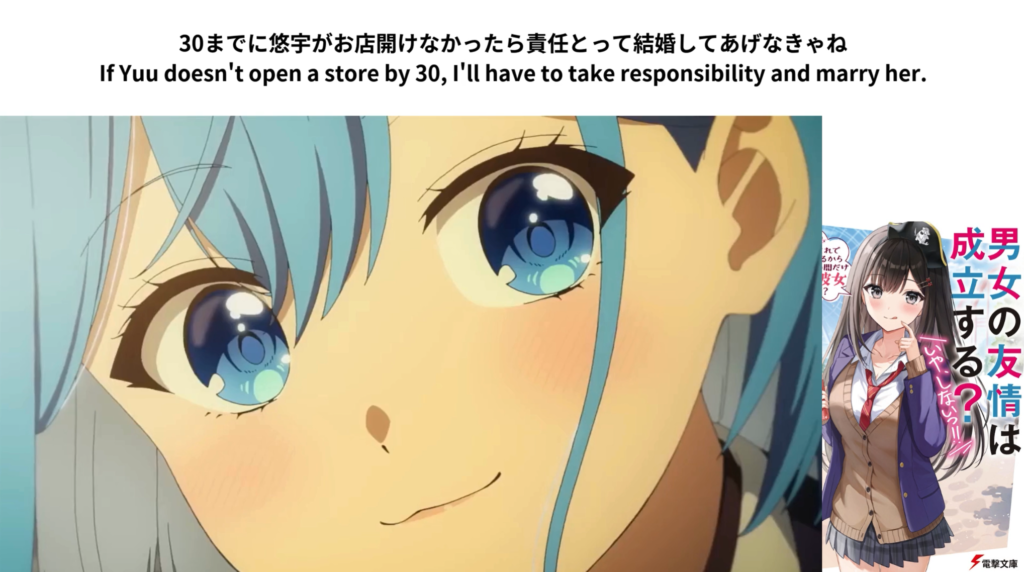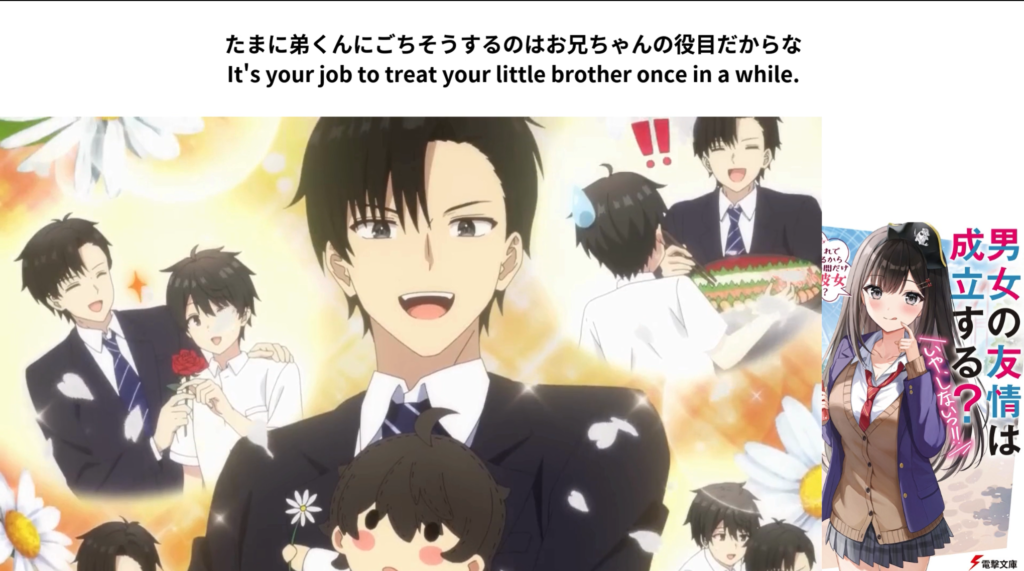Today's lesson is vocabulary and grammar explanation. After giving basic level vocabulary and advanced level vocabulary, I will give you a brief grammar explanation.
Standard Level Vocabulary ~0:50
Click on a word to open the dictionary.
| vocabulary | hiragana | pronunciation | meaning | POS |
|---|---|---|---|---|
| まで | まで | made | until, up to | particle |
| 店 | みせ | mise | shop, store | noun |
| 開く | あく / ひらく | aku / hiraku | to open | verb |
| 学校 | がっこう | gakkou | school | noun |
| 誰 | だれ | dare | who | pronoun |
| 来る | くる | kuru | to come | irregular verb |
| たまに | たまに | tamani | occasionally | adverb |
| 弟 | おとうと | otouto | younger brother | noun |
| お兄さん | おにいさん | oniisan | older brother (polite) | noun |
| だから | だから | dakara | so, therefore | conjunction |
| 前 | まえ | mae | before, in front | noun |
| 言う | いう | iu | to say | verb |
| 遊ぶ | あそぶ | asobu | to play | verb |
| 何 | なに / なん | nani / nan | what | pronoun |
| ほら | ほら | hora | look!, see? | interjection |
| 直す | なおす | naosu | to fix, to repair | verb |
Advanced Level Vocabulary ~0:50
Click on a word to open the dictionary.
| vocabulary | hiragana | pronunciation | meaning | POS |
|---|---|---|---|---|
| 責任 | せきにん | sekinin | responsibility | noun |
| 結婚 | けっこん | kekkon | marriage | noun / verb (〜する) |
| ベタベタ | べたべた | betabeta | clingy, sticky, overly affectionate | adverb / na-adjective |
| ごちそう | ごちそう | gochisou | feast, treat | noun / verb (〜する) |
| メッセージ | めっせーじ | messe-ji | message | noun (loanword) |
| 用事 | ようじ | youji | errand, business, something to do | noun |
Grammar Explanation
Study the important grammar in the video!
1. から / だから (Reason – Because)

Meaning: Because / So
Explanation:
「から」 is used after a reason to explain why something happens. It connects the reason and the result. 「だから」 is used at the beginning of a sentence to mean so or that’s why.
Structure:
[Reason] + から, [Result]
- だから, [Result]
Examples:
雨が降っているから、行きません。
Because it’s raining, I won’t go.
寒いから、コートを着ました。
Because it’s cold, I wore a coat.
おなかがすいた。だから、食べに行こう。
I’m hungry. So let’s go eat.
Note:
- 「から」 is more natural than 「ので」 in casual conversation.
- 「だから」 is used at the start of the sentence and needs a complete sentence before it.
2. あげる / もらう


Meaning: Give / Receive
Explanation:
These verbs are used when giving or receiving something.
- 「あげる」 = I give to someone / someone gives to someone (not me)
- 「もらう」 = I receive or someone receives from another person
Examples:
私は友だちにプレゼントをあげました。
I gave my friend a present.
友だちにプレゼントをもらいました。
I received a present from my friend.
Note:
- Use 「あげる」 when the giver is the speaker or a neutral person.
- Use 「くれる」 instead of 「あげる」 when someone gives to you.
- Use 「もらう」 when you or another person receives something.
